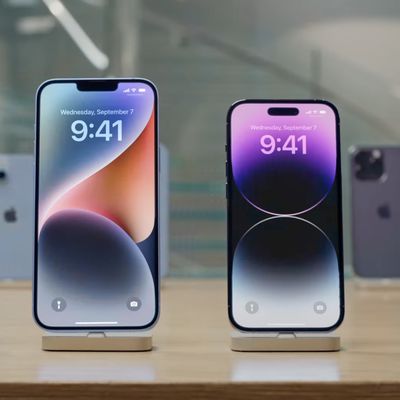Cost of App Store Piracy Pegged at $450 Million
24/7 Wall St. reports that Apple and App Store developers appear to have lost approximately $450 million to piracy since the marketplace for iPhone and iPod touch application opened in July 2008. The rough number is based on several estimates regarding the proportion of downloads that are paid applications, the piracy rate for paid applications, and the proportion of pirated app users who would have paid for the applications had pirated versions not been available.
There have been over 3 billion downloads since the inception of the App Store. Assuming the proportion of those that are paid apps falls in the middle of the Bernstein estimate, 17% or 510 million of these were paid applications. Based on our review of current information, paid applications have a piracy rate of around 75%. That supports the figure that for every paid download, there have been 3 pirated downloads. That puts the number of pirate downloads at 1.53 billion. If the average price of a paid application is $3, that is $4.59 billion dollars in losses split between Apple and the application developers. That is, of course, assuming that all of those pirates would have made purchases had the application not been available to them for free. This is almost certainly not the case. A fair estimate of the proportion of people who would have used the App Store if they did not use pirated applications is about 10%. This estimate yields about $459 million in lost revenue for Apple and application developers.
Based on Apple's take of App Store sales of 30%, the report concludes that piracy has cost Apple itself in the neighborhood of $140 million over the past year and a half, a significant loss for the company, especially considering Apple's estimated total App Store revenue of $500-$700 million.
The report also notes that Apple has remained silent about the issue and taken no significant steps to address the issue beyond the initial security measures deployed in the App Store. Assuming Apple's true goal is to sell iPhones and iPods, then like the original iTunes Music Store, the App Store may very well be viewed as a means to that end. Consequently, the hit to Apple's bottom line may be considered somewhat acceptable to the company if it continues to drive device sales, leaving developers to bear the brunt of the revenue loss.
Popular Stories
Apple will adopt the same rear chassis manufacturing process for the iPhone SE 4 that it is using for the upcoming standard iPhone 16, claims a new rumor coming out of China. According to the Weibo-based leaker "Fixed Focus Digital," the backplate manufacturing process for the iPhone SE 4 is "exactly the same" as the standard model in Apple's upcoming iPhone 16 lineup, which is expected to...
Apple typically releases its new iPhone series around mid-September, which means we are about two months out from the launch of the iPhone 16. Like the iPhone 15 series, this year's lineup is expected to stick with four models – iPhone 16, iPhone 16 Plus, iPhone 16 Pro, and iPhone 16 Pro Max – although there are plenty of design differences and new features to take into account. To bring ...
Israel-based mobile forensics company Cellebrite is unable to unlock iPhones running iOS 17.4 or later, according to leaked documents verified by 404 Media. The documents provide a rare glimpse into the capabilities of the company's mobile forensics tools and highlight the ongoing security improvements in Apple's latest devices. The leaked "Cellebrite iOS Support Matrix" obtained by 404 Media...
If you have an old Apple Watch and you're not sure what to do with it, a new product called TinyPod might be the answer. Priced at $79, the TinyPod is a silicone case with a built-in scroll wheel that houses the Apple Watch chassis. When an Apple Watch is placed inside the TinyPod, the click wheel on the case is able to be used to scroll through the Apple Watch interface. The feature works...
A widespread system failure is currently affecting numerous Windows devices globally, causing critical boot failures across various industries, including banks, rail networks, airlines, retailers, broadcasters, healthcare, and many more sectors. The issue, manifesting as a Blue Screen of Death (BSOD), is preventing computers from starting up properly and forcing them into continuous recovery...
Apple is seemingly planning a rework of the Apple Watch lineup for 2024, according to a range of reports from over the past year. Here's everything we know so far. Apple is expected to continue to offer three different Apple Watch models in five casing sizes, but the various display sizes will allegedly grow by up to 12% and the casings will get taller. Based on all of the latest rumors,...




















